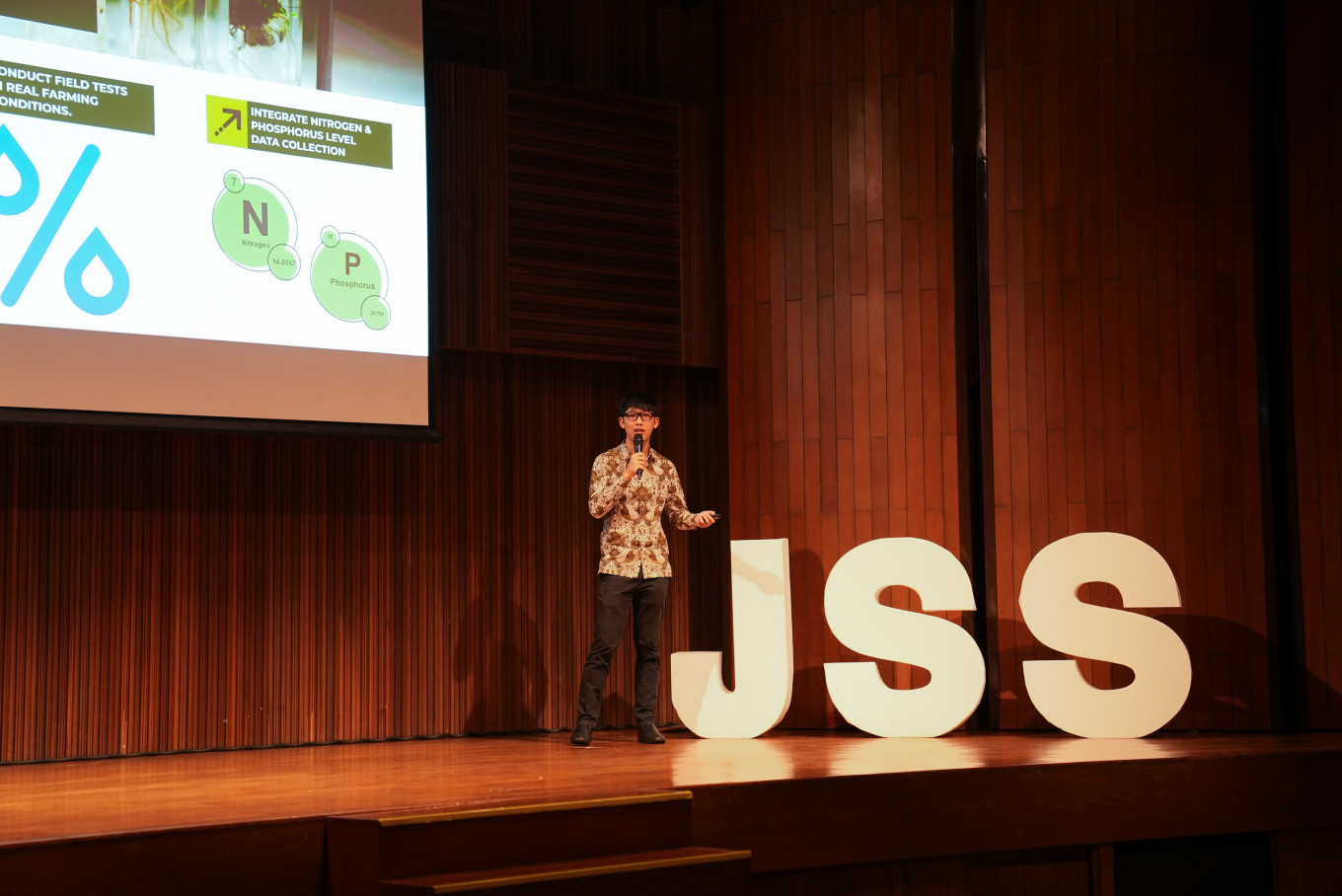Tech-Powered Water Conservation: How a High Schooler's Innovation Could Transform Indonesian Agriculture

Revolutionizing Agriculture with Smart Water Management
In a world grappling with increasing water scarcity, innovative solutions are desperately needed, particularly in vital sectors like agriculture. A remarkable Grade 11 student from Jakarta is leading the charge, demonstrating how technology can dramatically improve water conservation practices and boost agricultural efficiency. This story, highlighted at the recent Jakarta Scholar Symposium (JSS), showcases the potential of young minds to tackle complex global challenges.
The Jakarta Scholar Symposium (JSS) is a non-profit organization dedicated to amplifying the voices and ideas of Jakarta's brightest scholars. Modeled after TED-Ed, JSS provides a platform for students to share their passions and research findings in a dynamic and engaging format. This year’s symposium featured a particularly compelling presentation on the intersection of technology and sustainable agriculture.
The Student's Innovative Approach
The student’s project focuses on leveraging readily available technology – specifically, sensors, data analytics, and automated irrigation systems – to optimize water usage in agricultural settings. Recognizing that traditional irrigation methods often lead to significant water waste, the student developed a system that monitors soil moisture levels in real-time, analyzes weather patterns, and adjusts irrigation schedules accordingly. This precision approach ensures that crops receive the exact amount of water they need, minimizing waste and maximizing yield.
Addressing a Critical Need in Indonesia
Indonesia, like many countries in Southeast Asia, faces significant challenges related to water management. Agricultural practices are a major consumer of water resources, and inefficient irrigation techniques contribute to depletion and environmental degradation. The student’s innovation directly addresses this issue, offering a practical and scalable solution for improving water use efficiency in Indonesian agriculture.
Key Benefits and Potential Impact
- Reduced Water Consumption: The smart irrigation system significantly minimizes water waste compared to traditional methods.
- Increased Crop Yields: Optimized water delivery leads to healthier crops and higher yields.
- Cost Savings for Farmers: Lower water bills and increased productivity translate into economic benefits for farmers.
- Environmental Sustainability: Conserving water resources protects ecosystems and promotes long-term environmental health.
Looking Ahead: Scaling the Solution
The student's project represents a promising step towards a more sustainable and efficient agricultural sector in Indonesia. While still in its early stages, the potential for scaling this technology across various agricultural regions is significant. Further research and development, along with collaboration between students, researchers, and policymakers, will be crucial for realizing the full impact of this innovation. The JSS platform provides a vital springboard for these ideas to gain traction and inspire further action.
This presentation at the Jakarta Scholar Symposium serves as a powerful reminder of the importance of investing in young talent and fostering a culture of innovation. By empowering students to tackle real-world problems, we can unlock a wave of creative solutions that will shape a more sustainable future for all.





